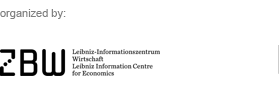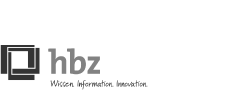

SWIB21 Booths
- SkoHub Vocabs
- Metafacture
- Annif corpus hackathon
- OpenRefine
- Introduction to Solid
- CubicWeb and SparqlExplorer
- coli-conc infrastructure
- QA catalogue
ⓘ What is a booth?
Booths are a new SWIB format being tried out for the first time at SWIB21 which will happen online from 29 November - 03 December 2021.
Why?
Just like at a physical conference, a virtual booth enables direct interaction between people who maintain or “power use” some kind of software or tool and those that have interest in learning more about it or using it.
How does it work?
Technically, a booth is a combination of two things:
- a dedicated open chat channel at https://swib21.collochat.de/
- a dedicated video conference room
Asynchronous interaction will be happening during the whole conference in the dedicated chat channel while live interaction will be happening on the open day (Thursday, 2 December).
How to set up a booth
If you are interested in setting up a booth at SWIB21, please add a description to this pad at https://pad.gwdg.de/swib21-boothes?both. SWIB oganizers will then create the chat channel & a video conference room.
SkoHub Vocabs
Chat channel: https://swib21.collochat.de/swib21/channels/skohub-vocabs-booth
URL: https://github.com/skohub-io/skohub-vocabs
Description: SkoHub Vocabs is a static site generator for publishing SKOS concepts schemes on the web.
Contact: @acka47, @steffenr
Metafacture
Chat channel: https://swib21.collochat.de/swib21/channels/metafacture-booth
URL: https://metafacture.org/
Description: Metafacture is a toolkit for processing semi-structured data with a focus on library metadata.
Contact: @dr0i, @fsteeg, @TobiasNx
Annif corpus hackathon
Chat channel: https://swib21.collochat.de/swib21/channels/annif-booth
URL: https://github.com/NatLibFi/Annif/wiki/Corpus-formats
Description: This booth is for those who’ve already completed the Annif tutorial (or are otherwise familiar with the Annif automatic indexing tool) and now want to get started using their own data sets with Annif. Bring your own data set (e.g. bibliographic records in any format, and/or abstracts or full text documents, indexed/classified with some controlled vocabulary) and we will help you convert those into the required corpus formats for Annif. Some programming skills are going to be necessary for the conversion; e.g. Jupyter Notebooks work great for this but we can help with any programming environment that you are familiar with.
Contact: @osmasuominen, @monalehtinen, @juho.inkinen-at-helsinki.fi, @mo-fu
OpenRefine
Chat channel: https://swib21.collochat.de/swib21/channels/openrefine-booth
URL: https://www.openrefine.org
Description: OpenRefine is a powerful free and open source tool for working with messy data: cleaning it, transforming it from one format into another, and connecting it with knowledge bases, including Wikidata. OpenRefine is used by quite diverse communities interested in data manipulation and cleaning: librarians, researchers, data scientists, data journalists, and in the Wikimedia community.
Contact: @sfauconn
Introduction to Solid
Chat channel: https://swib21.collochat.de/swib21/channels/solid
URL: https://solidproject.org
Description: Solid lets people store their data securely in decentralized data stores called Pods. Pods are like secure personal web servers for data. All data in a pod is accessible via the Solid Protocol. When data is stored in someone’s pod, they control who and what can access it. Any kind of data can be stored in a Solid pod, including regular files that you might store in a Google Drive or Dropbox folder, but it is the ability to store Linked Data that makes Solid special.
Contact: @hochstenbach
CubicWeb and SparqlExplorer
Chat channel: https://swib21.collochat.de/swib21/channels/cubicweb--sparqlexplorer
URL: https://forge.extranet.logilab.fr/cubicweb/cubicweb & https://forge.extranet.logilab.fr/open-source/SemWeb/sparqlexplorer
Description: CubicWeb is a semantic web application framework, licensed under the LGPL, that empowers developers to efficiently build web applications and manage data. It can create an application based on an OWL ontology and import RDF described with this ontology (see also the CubicWeb workshop on Tuesday, 14:00 UTC).
With SparqlExplorer, we can visually explore the content of a SPARQL endpoint without writing queries (see also the SparqlExplorer talk on Wednesday, 15:30 UTC).
CubicWeb & SparqlExplorer are both maintained by LogiLab.
Contact: @ethieblin & @famarger
coli-conc infrastructure (Cocoda mapping tool, BARTOC, coli-ana…)
Chat channel: https://swib21.collochat.de/swib21/channels/coli-conc
URL: https://coli-conc.gbv.de/
Description: Project coli-conc subsumes services and standards to facilitate working with controlled vocabularies and mappings between their concepts. We welcome questions and discussion around these topics, including the mapping tool Cocoda, BARTOC vocabulary registry, coli-ana DDC decomposition, JSKOS data format and API etc.
Contact: @nichtich
QA catalogue
Chat channel: https://swib21.collochat.de/swib21/channels/qa-catalogue
URL: https://github.com/pkiraly/metadata-qa-marc
Description: QA catalogue is an open source toolset for detecting particular aspects of either a selection of MARC21 records or a full library catalogue. The aspects that the tool analyses are: validity of the structure and the data element values against MARC21 bibliographic standard (and definitions of locally defined data elements); completeness and three variations of weighted completeness (these are implementation of suggestions found in research papers); the support of FRBR functions; analysis of subject indexing and authorities, the analysis of the positional control fields (Leader, 00[6-8]); the weight of the most frequently used data elements; and the cataloguing history.
Contact: @pkiraly
ZBW
Joachim Neubert
T. +49-(0)-40-42834462
E-mail j.neubert(at)zbw.eu
hbz
Adrian Pohl
T. +49-(0)-221-40075235
E-mail
swib(at)hbz-nrw.de
Twitter: #swib21

